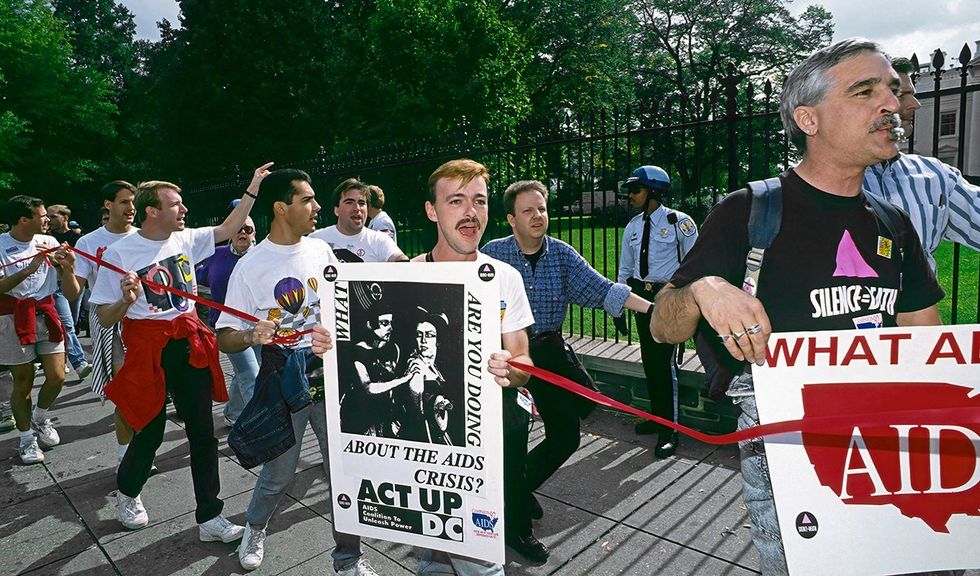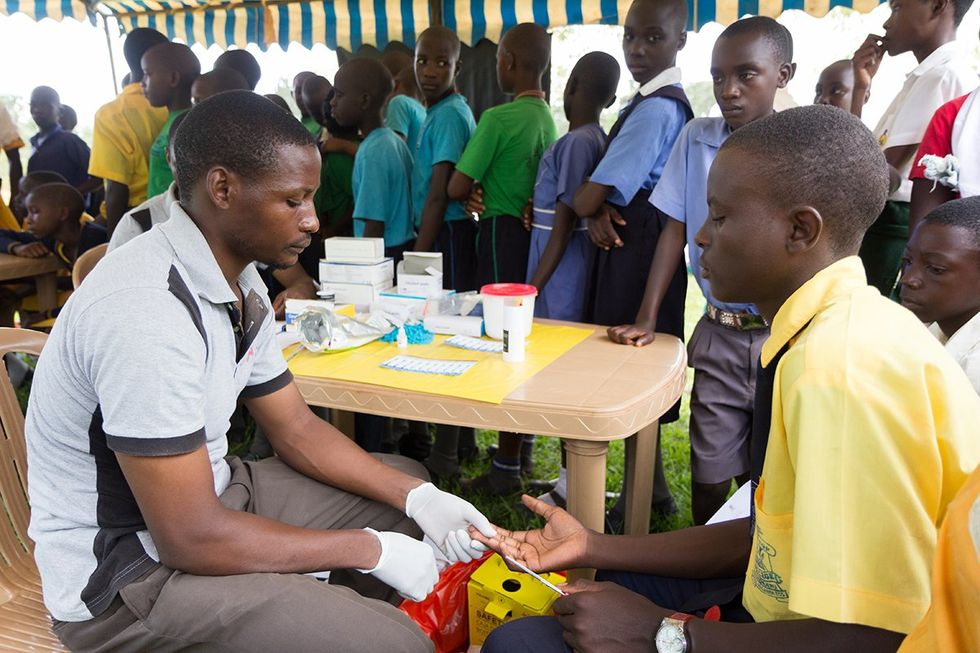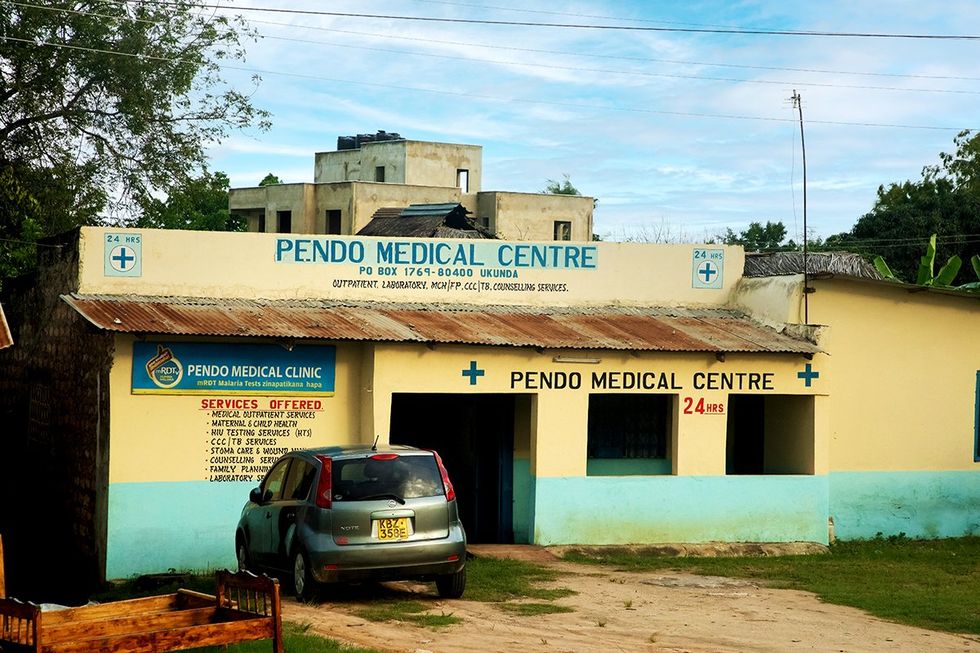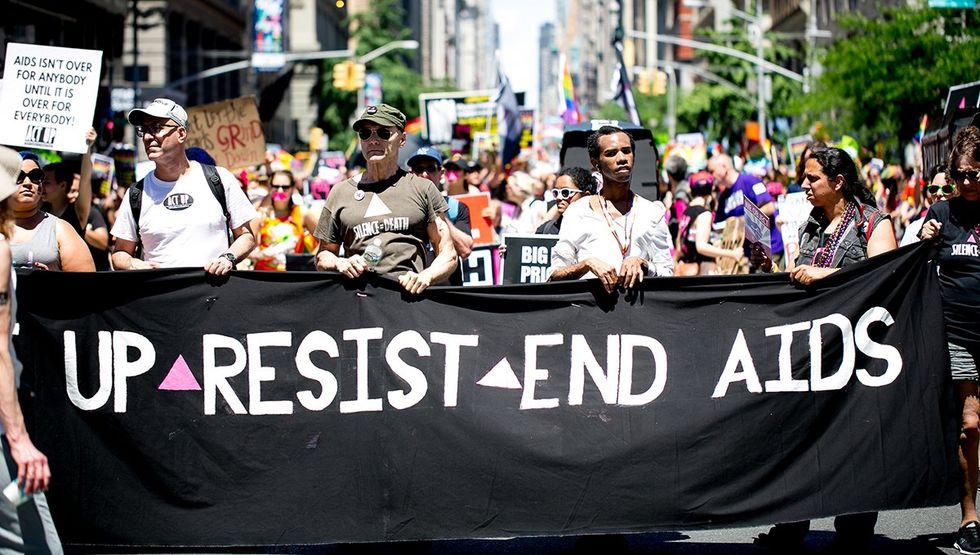The events that take place across Pride Month demonstrate the power of inclusivity. The determination of LGBTQ+ communities and allies to ensure inclusion for all people has been core to the progress made in recent decades. We can ensure a fairer, safer future for all by insisting on acceptance and rejecting criminalization, discrimination, and stigmatization. By protecting everyone's human rights, we will protect everyone's health.
Pride has always been a protest and commemoration as much as a celebration. More than 50 years ago, the first Pride marchers in New York rejected the shame others sought to impose on them and honored the memory of people who were mistreated and defamed.
For them, defiance and joy were not opposites; their joy was defiance.
 mark reinstein/Shutterstock
mark reinstein/Shutterstock
Pride has always been about collective action for justice. It is not a coincidence that the networks built by LGBTQ+ activists in the late 1960s went on to pioneer the community response to HIV at the onset of the AIDS pandemic in the 1980s. They helped mitigate the spread and impact of the virus by providing peer-to-peer information about HIV and delivering care and support at a time when no one else was willing to do so. They reached out in partnership to defend all minorities from discrimination and violence. They launched campaigns to overturn the laws and attitudes that violate human rights and obstruct people's access to services.
As HIV treatment and prevention innovations expanded, it was groups spearheaded by LGBTQ+ activists, including ACT UP in the United States and the Treatment Action Campaign in South Africa, who drove the campaigns to break the monopoly hold on the production of medicines so that all who needed medicines to treat and prevent HIV could access them.
 Adam Jan Figel/Shutterstock
Adam Jan Figel/Shutterstock
The LGBTQ+ community's refusal to accept subjugation and building solidarity with and partnering with other marginalized groups has driven much of the progress against the AIDS pandemic globally.
So much has been won. At the beginning of the AIDS pandemic, most countries criminalized LGBTQ+ people. But today, more than two-thirds of countries do not criminalize them. Since 2019, Botswana, Gabon, Angola, Bhutan, Antigua and Barbuda, Barbados, Singapore, Saint Kitts and Nevis, Cook Islands, Mauritius, and Dominica have all repealed laws that criminalized LGBTQ+ people. But the progress is increasingly under threat. LGBTQ+ rights are under attack, alongside the rights of women and girls, migrants, and ethnic and religious minorities. Leaders fearful of their status and power are whipping up hatred toward the marginalized to divert attention from economic and political woes. They are pushing for draconian laws and enabling vigilantes to follow through on their verbal violence with physical violence.
 Elen Marlen/Shutterstock
Elen Marlen/Shutterstock
Meanwhile, at a time when solidarity and support for human rights defenders are vital and urgent, funding for civil society organizations is shrinking as donor countries cut their budgets.
We are at a hinge moment: the end of AIDS as a public health threat is achievable in this decade, but progress is imperiled by the pushback on human rights. Courage in support of human rights is essential to protect us all.
Stigma kills; solidarity saves lives.
 Gina Kropf Photographer/Shutterstock
Gina Kropf Photographer/Shutterstock
The people at the most challenging intersections of injustice are leading the way. However, they cannot succeed alone; they need allies on and by their side.
The United Nations is clear: be proud of who you are and be proud to be an ally for everyone's human rights.
Winnie Byanyima is the Executive Director of the Joint United Nations Programme on HIV/AIDS (UNAIDS) and an Under-Secretary-General of the United Nations. A passionate and longstanding champion of social justice and gender equality, Ms Byanyima leads the United Nations’ efforts to end the AIDS epidemic by 2030. Ms Byanyima believes that health care is a human right and was an early champion of a People’s Vaccine against the coronavirus that is available and free of charge to everyone, everywhere.
Voices is dedicated to featuring a wide range of inspiring personal stories and impactful opinions from the LGBTQ+ and Allied community. Visit Advocate.com/submit to learn more about submission guidelines. We welcome your thoughts and feedback on any of our stories. Email us at voices@equalpride.com. Views expressed in Voices stories are those of the guest writers, columnists and editors, and do not directly represent the views of The Advocate or our parent company, equalpride.


 mark reinstein/Shutterstock
mark reinstein/Shutterstock Adam Jan Figel/Shutterstock
Adam Jan Figel/Shutterstock Elen Marlen/Shutterstock
Elen Marlen/Shutterstock Gina Kropf Photographer/Shutterstock
Gina Kropf Photographer/Shutterstock

































































Charlie Kirk DID say stoning gay people was the 'perfect law' — and these other heinous quotes